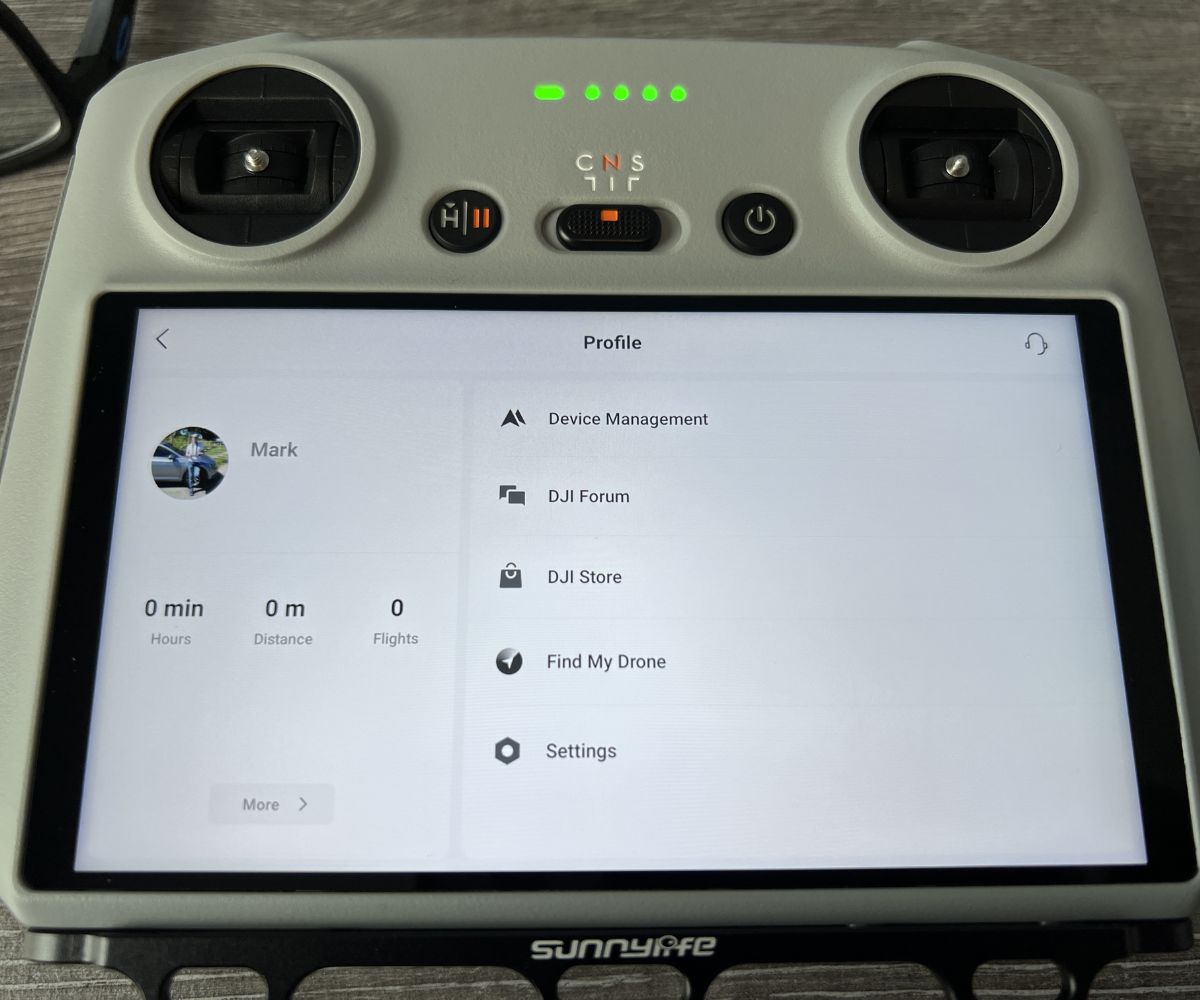Introduction
In the digital age, web browsers have become an integral part of our daily lives, serving as gateways to the vast realm of the internet. Among the myriad of browsers available, Firefox has garnered a loyal following due to its user-friendly interface, robust security features, and commitment to user privacy. One of the key components that sets Firefox apart is its telemetry system, which plays a crucial role in enhancing the browser's performance and user experience.
Firefox Telemetry is a mechanism designed to collect and transmit data from the Firefox browser to Mozilla, the organization behind Firefox. This data is instrumental in providing insights into how users interact with the browser, enabling Mozilla to make informed decisions regarding feature enhancements, bug fixes, and overall performance optimizations. While the concept of data collection may raise concerns about privacy and security, Mozilla has been transparent about its telemetry practices, emphasizing the anonymized and aggregated nature of the data collected.
Understanding Firefox Telemetry is essential for users who seek to comprehend the inner workings of the browser and its continuous evolution. By delving into the intricacies of Firefox Telemetry, users can gain a deeper appreciation for the meticulous efforts invested in refining the browser's functionality and ensuring a seamless browsing experience. In the subsequent sections, we will explore the significance of Firefox Telemetry, its operational framework, the nature of the data it collects, and how users can manage its settings to align with their preferences. Let's embark on a journey to unravel the mysteries of Firefox Telemetry and unveil the pivotal role it plays in shaping the Firefox browsing experience.
What is Firefox Telemetry?
Firefox Telemetry serves as the eyes and ears of the Firefox browser, enabling it to gather valuable insights into user interactions and browser performance. In essence, it is a data collection mechanism that operates in the background, capturing a wide array of metrics related to how users utilize the browser. These metrics encompass diverse aspects, including hardware specifications, browsing behavior, performance indicators, and error occurrences.
At its core, Firefox Telemetry is designed to facilitate a comprehensive understanding of how users engage with the browser, encompassing activities such as page loading times, memory usage, and the frequency of encountering errors or crashes. By aggregating and analyzing this data, Mozilla can identify patterns, discern areas for improvement, and make informed decisions to enhance the overall browsing experience.
It's important to note that Firefox Telemetry adheres to strict privacy standards, with a focus on anonymizing and aggregating the collected data to safeguard user privacy. This approach ensures that individual user activities are not identifiable, and only collective trends and patterns are utilized for analysis and improvement purposes.
In essence, Firefox Telemetry serves as a vital tool for Mozilla to gain insights into the real-world usage of the browser, enabling the organization to make data-driven decisions to refine and optimize Firefox. This continuous feedback loop, facilitated by Firefox Telemetry, empowers Mozilla to address performance bottlenecks, prioritize feature enhancements, and proactively identify and resolve issues that impact the user experience.
By harnessing the power of Firefox Telemetry, Mozilla can stay attuned to the evolving needs and preferences of its user base, ultimately striving to deliver a browsing experience that is not only secure and reliable but also tailored to meet the diverse requirements of its global user community.
Why is Firefox Telemetry important?
Firefox Telemetry plays a pivotal role in shaping the evolution of the Firefox browser, making it a crucial component in the quest for continuous improvement and innovation. Its importance stems from several key aspects that underscore its significance in the realm of web browsing:
-
Data-Driven Insights: Firefox Telemetry serves as a conduit for gathering real-world usage data, providing Mozilla with invaluable insights into how users interact with the browser. This data-driven approach enables Mozilla to make informed decisions regarding feature enhancements, performance optimizations, and bug fixes. By leveraging the wealth of data collected through Firefox Telemetry, Mozilla can prioritize development efforts based on actual user behaviors and needs, ensuring that the browser evolves in alignment with user preferences.
-
Performance Optimization: The data collected through Firefox Telemetry offers a comprehensive view of the browser's performance across diverse hardware configurations and user scenarios. This enables Mozilla to identify performance bottlenecks, streamline resource utilization, and enhance the overall browsing experience. By pinpointing areas for optimization, Firefox Telemetry empowers Mozilla to fine-tune the browser's performance, resulting in faster page load times, reduced memory consumption, and a more responsive user interface.
-
Bug Identification and Resolution: Firefox Telemetry serves as a proactive tool for identifying and addressing potential issues that users may encounter while using the browser. By analyzing error occurrences, crash reports, and other relevant metrics, Mozilla can swiftly detect and resolve bugs, thereby ensuring a more stable and reliable browsing experience for users. This proactive approach to bug resolution is instrumental in maintaining the browser's integrity and minimizing disruptions for users.
-
User-Centric Development: Through Firefox Telemetry, Mozilla gains a deeper understanding of user behaviors, preferences, and pain points. This user-centric approach enables Mozilla to tailor its development efforts to address the evolving needs of its diverse user base. By aligning feature development and optimizations with user feedback derived from Firefox Telemetry, Mozilla can prioritize enhancements that resonate with users, fostering a browser experience that is both intuitive and responsive to user demands.
In essence, Firefox Telemetry is important because it serves as the cornerstone of Mozilla's commitment to delivering a browser experience that is not only secure and reliable but also finely tuned to meet the dynamic needs of its global user community. By harnessing the power of data-driven insights, performance optimization, bug resolution, and user-centric development, Firefox Telemetry empowers Mozilla to continuously elevate the Firefox browsing experience, ensuring that it remains a trusted ally in the digital realm.
How does Firefox Telemetry work?
Firefox Telemetry operates as a sophisticated data collection and transmission system that functions seamlessly within the Firefox browser, capturing a diverse array of metrics to provide insights into user interactions and browser performance. At its core, Firefox Telemetry employs a multi-faceted approach to gather and transmit data, encompassing the following key elements:
-
Data Collection Mechanism: Firefox Telemetry leverages a finely tuned data collection mechanism that captures an extensive range of metrics related to user activities, browser performance, and error occurrences. This mechanism operates in the background, unobtrusively gathering anonymized data from a broad spectrum of user scenarios and hardware configurations.
-
Data Aggregation and Anonymization: Upon collection, the gathered data undergoes a meticulous process of aggregation and anonymization, ensuring that individual user activities remain indistinguishable and that only collective trends and patterns are utilized for analysis. This privacy-centric approach safeguards user anonymity while enabling Mozilla to derive meaningful insights from the aggregated data.
-
Data Transmission and Analysis: The aggregated telemetry data is transmitted to Mozilla's servers, where it undergoes comprehensive analysis to discern usage patterns, performance indicators, and potential areas for improvement. This analysis serves as the foundation for informed decision-making, empowering Mozilla to prioritize development efforts, optimize performance, and proactively address issues that impact the user experience.
-
Opt-In Participation: Firefox Telemetry operates on an opt-in basis, allowing users to voluntarily contribute to the data collection process. This approach underscores Mozilla's commitment to transparency and user empowerment, as users have the autonomy to decide whether they wish to participate in Firefox Telemetry.
-
Continuous Iteration and Improvement: The insights derived from Firefox Telemetry fuel a continuous iteration and improvement cycle for the Firefox browser. By leveraging the telemetry data, Mozilla can refine existing features, introduce new functionalities, and address performance bottlenecks, thereby ensuring that the browser evolves in alignment with user needs and preferences.
In essence, Firefox Telemetry works as a foundational mechanism that enables Mozilla to gain a comprehensive understanding of how users engage with the browser, empowering the organization to make data-driven decisions to enhance the browsing experience. Through its meticulous data collection, anonymization, transmission, and analysis processes, Firefox Telemetry serves as a catalyst for continuous improvement, driving the evolution of the Firefox browser to meet the dynamic demands of its global user base.
What data does Firefox Telemetry collect?
Firefox Telemetry serves as a comprehensive mechanism for capturing a diverse array of metrics that provide insights into user interactions, browser performance, and error occurrences. The data collected through Firefox Telemetry encompasses a wide spectrum of information, offering a holistic view of how users engage with the Firefox browser. Some of the key categories of data collected by Firefox Telemetry include:
-
Performance Metrics: Firefox Telemetry captures performance-related metrics, including page load times, responsiveness of the user interface, memory consumption, and CPU utilization. These metrics offer valuable insights into the browser's efficiency and responsiveness across different user scenarios and hardware configurations.
-
Usage Statistics: The telemetry system gathers usage statistics, such as the frequency of browser launches, the duration of browsing sessions, and the utilization of various browser features. These statistics provide a nuanced understanding of how users interact with the browser, enabling Mozilla to tailor feature development and optimizations to align with user behaviors.
-
Error and Crash Reports: Firefox Telemetry collects data pertaining to error occurrences, crash reports, and unexpected browser terminations. This data is instrumental in identifying potential issues that users may encounter, allowing Mozilla to proactively address bugs and stability concerns to ensure a more reliable browsing experience.
-
Hardware Configurations: The telemetry system captures anonymized hardware specifications, including CPU type, GPU information, available memory, and screen resolution. This data aids in understanding the diverse hardware environments in which Firefox operates, guiding optimizations to ensure compatibility and performance across a broad range of devices.
-
Browser Customization and Settings: Firefox Telemetry includes data related to browser customization, such as the utilization of add-ons, theme preferences, and browser settings. This information offers insights into user preferences and the extent to which users personalize their browsing experience, informing feature enhancements and compatibility considerations.
-
Telemetry Coverage and Participation: Mozilla also collects data related to the telemetry coverage and user participation levels. This data helps in understanding the extent to which telemetry is utilized and the voluntary participation of users, guiding efforts to ensure representative data collection while respecting user privacy and autonomy.
By capturing this diverse array of metrics, Firefox Telemetry provides Mozilla with a comprehensive understanding of user behaviors, browser performance, and potential areas for improvement. The anonymized and aggregated nature of the collected data ensures user privacy while empowering Mozilla to make informed decisions to enhance the Firefox browsing experience.
How to manage Firefox Telemetry settings?
Managing Firefox Telemetry settings empowers users to exercise control over the data collection and transmission aspects of the telemetry system, aligning with their privacy preferences and contributing to the collective improvement of the browser. Mozilla has prioritized transparency and user empowerment, offering a range of options for users to manage Firefox Telemetry settings effectively.
Accessing Telemetry Preferences
To manage Firefox Telemetry settings, users can navigate to the browser's settings menu by clicking on the three horizontal lines in the upper-right corner, then selecting "Options" (or "Preferences" on macOS). Within the settings menu, users can access the "Privacy & Security" tab, where they will find the "Firefox Data Collection and Use" section.
Options for Managing Telemetry
Within the "Firefox Data Collection and Use" section, users have the flexibility to customize their telemetry settings based on their preferences. Mozilla provides the following options for managing Firefox Telemetry:
-
Telemetry Data Collection: Users can choose to enable or disable telemetry data collection based on their comfort level. By default, Firefox Telemetry is set to collect and transmit data, but users have the autonomy to opt out of this data collection if they prefer not to participate.
-
Telemetry Reporting: Users can also control the transmission of telemetry data to Mozilla's servers. The options include "Allow Firefox to send technical and interaction data to Mozilla" and "Allow Firefox to send backlogged crash reports on your behalf."
-
Viewing Telemetry Data: For users who are curious about the specific data being collected, Firefox provides the option to view the telemetry data that has been transmitted to Mozilla. This transparency allows users to gain insights into the nature of the collected data and make informed decisions about their participation in Firefox Telemetry.
Balancing Privacy and Contribution
Managing Firefox Telemetry settings involves striking a balance between privacy considerations and the desire to contribute to the collective improvement of the browser. By providing granular control over telemetry settings, Mozilla empowers users to make privacy-conscious choices while still contributing to the valuable data that fuels the refinement and evolution of the Firefox browser.
User Empowerment and Transparency
Mozilla's approach to managing Firefox Telemetry settings reflects a commitment to user empowerment and transparency. By offering clear options for users to customize their telemetry preferences, Mozilla fosters a culture of informed participation, ensuring that users have the autonomy to shape their browsing experience in alignment with their privacy values.
In essence, managing Firefox Telemetry settings is a testament to Mozilla's dedication to user privacy and empowerment, allowing users to actively engage in the data collection process while maintaining control over their privacy preferences. This approach underscores Mozilla's commitment to fostering a collaborative ecosystem where user feedback and privacy considerations are valued, ultimately contributing to the ongoing enhancement of the Firefox browsing experience.
Conclusion
In conclusion, Firefox Telemetry stands as a testament to Mozilla's unwavering commitment to transparency, user empowerment, and continuous improvement. The telemetry system serves as a vital conduit for gathering real-world usage data, providing Mozilla with invaluable insights into user behaviors, browser performance, and potential areas for enhancement. By harnessing the power of data-driven insights, Mozilla can refine the Firefox browser to meet the dynamic needs of its global user community.
The significance of Firefox Telemetry extends beyond mere data collection; it embodies Mozilla's dedication to privacy-centric practices, as the collected data undergoes meticulous anonymization and aggregation to safeguard user anonymity. This privacy-centric approach ensures that individual user activities remain indistinguishable, allowing Mozilla to derive meaningful insights from the aggregated data while respecting user privacy.
Furthermore, Firefox Telemetry exemplifies Mozilla's commitment to user empowerment, as it operates on an opt-in basis, granting users the autonomy to decide whether to participate in the data collection process. This emphasis on user choice underscores Mozilla's respect for user privacy and the value placed on informed participation.
By offering granular control over telemetry settings, Mozilla empowers users to make privacy-conscious choices while still contributing to the valuable data that fuels the refinement and evolution of the Firefox browser. This approach fosters a culture of informed participation, ensuring that users have the autonomy to shape their browsing experience in alignment with their privacy values.
In essence, Firefox Telemetry serves as a cornerstone of Mozilla's mission to deliver a browsing experience that is not only secure and reliable but also finely tuned to meet the diverse requirements of its global user community. Through its meticulous data collection, anonymization, transmission, and analysis processes, Firefox Telemetry drives the continuous evolution of the Firefox browser, ensuring that it remains a trusted ally in the digital realm.
As users navigate the digital landscape, Firefox Telemetry stands as a testament to Mozilla's unwavering commitment to user privacy, transparency, and the relentless pursuit of excellence. It is through the collective contributions of users, guided by Mozilla's principled approach, that the Firefox browser continues to evolve, adapt, and thrive in an ever-changing digital landscape.

























